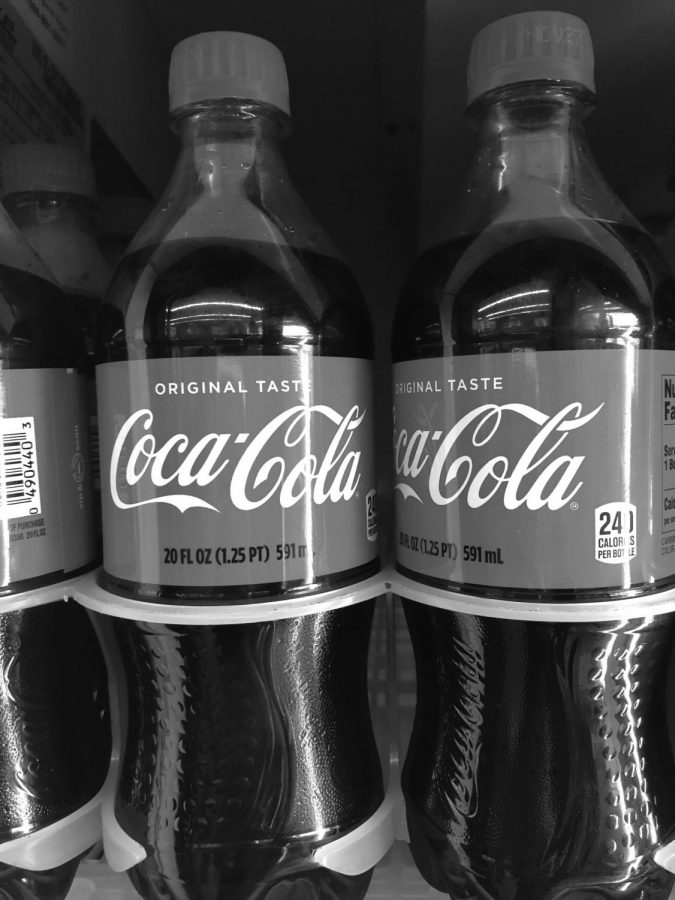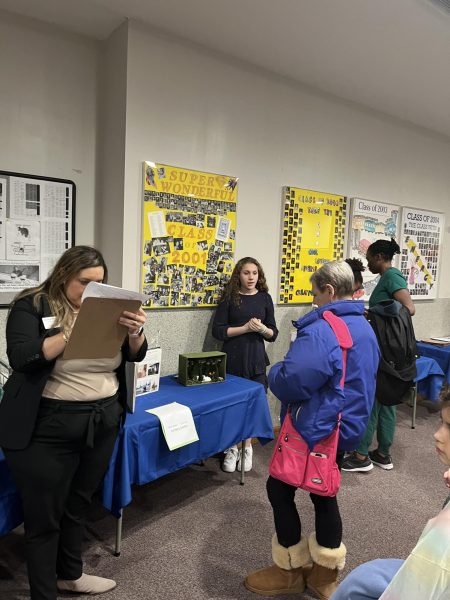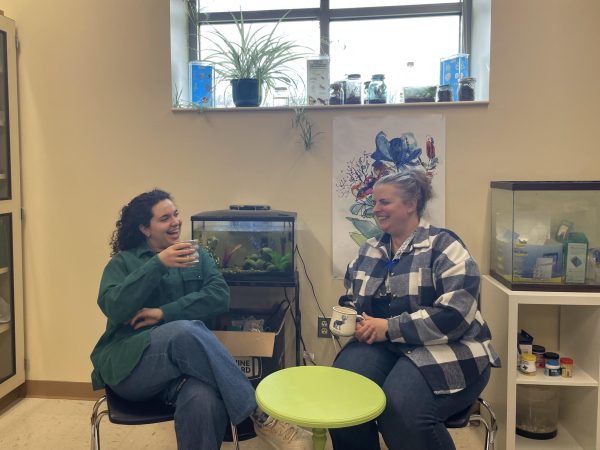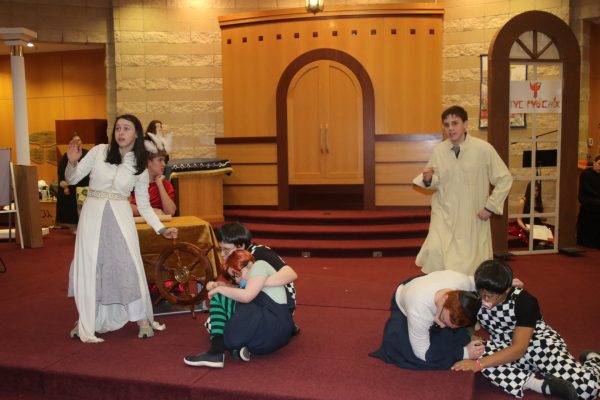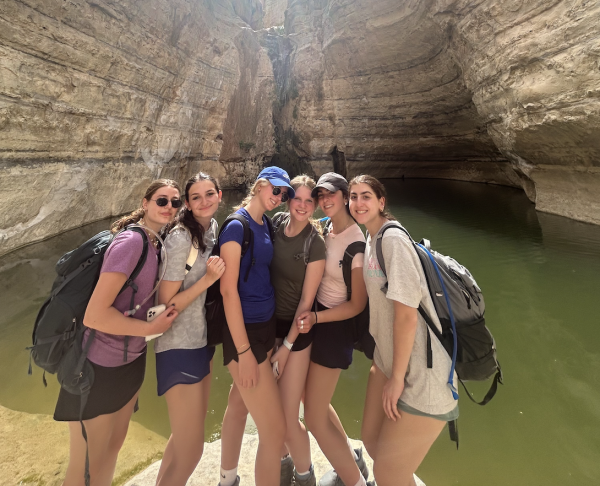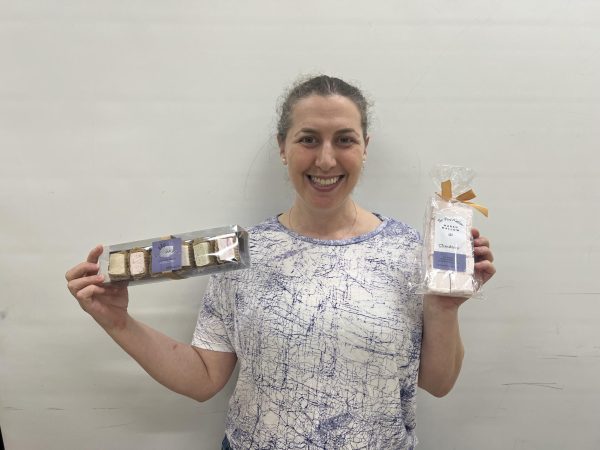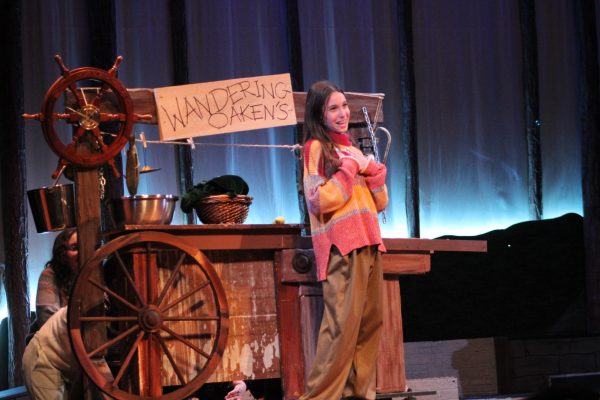Despite medical advice to the contrary, to stay awake, many enter a caffeine craze
Coca-Cola is just one of the methods of consuming caffeine popular among students.
“But first, coffee.”
This expression is seen on signs, shirts and mugs, and for many high school students, it could not be more true.
For some students, drinking their daily dose of caffeine in the morning is essential for maintaining higher energy levels and feeling awake throughout the day. Coffee can help students feel less lethargic after a long night of homework.
Senior Rachel Serfaty is not only hooked on caffeine, but makes and sells coffee daily at her job as a Starbucks barista. Throughout high school, Serfaty has consistently drunk coffee every morning to help her wake up for school, even though she originally hated the taste. Serfaty began her job as a barista in March of 2016, and since then, she has come to like the taste of coffee more.
“Since I started working at Starbucks, and obviously now have way more access to coffee, I’ve become accustomed to the taste and actually crave it and need it in order to survive during the day,” Serfaty said. “If I don’t have it for a day, I get very sluggish and not awake and feel really awful.”
Rockville, Md. pediatrician Steven Hirsch said that the main issue with caffeine is the dependency teens have on it. People can get addicted to it, and therefore when they do not consume it, they experience withdrawal. Withdrawal symptoms include headaches, fatigue and a general malaise.
“Taking the caffeine won’t harm you as much as not taking it when your body is used to it,” Hirsch said.
An additional issue with caffeine consumption in children and teens is that when consuming it through energy drinks, teens are often unaware of the high caffeine levels present. High amounts of caffeine can cause people to have an elevated heart rate, feel jittery, have trouble sleeping and increase anxiety. These symptoms are especially harmful in children, since their bodies are constantly changing.
Junior Macie Gelb is not a caffeine drinker, for many of the reasons that Hirsch stated. It makes her feel nauseous, anxious and generally unwell. For Gelb, energy drinks in particular are problematic because of their rapid effects.
“I think that [energy drinks] are dangerous because they give you a lot of energy in a really short amount of time and then you crash and you are really tired,” Gelb said. “I’ve seen the effects of them on people, and I don’t think it is a good way to get your energy.”
Hirsch said that another problem with energy drinks is that they are often confused for sports drinks, so people drink them during physical activity. Consumption of too much caffeine during a workout can cause dehydration since caffeine is a diuretic.
“People might think that an energy drink is good for sports or for physical activity but it is probably one of the worst things you can do for sports or physical activity,” Hirsch said.
Sophomore Ryan Bauman has tried everything from coffee to energy drinks. He drinks coffee before school and brings canned coffee to drink during the day. Bauman’s parents are also avid coffee drinkers and do not object to his habits.
When Bauman wanted more energy than coffee, he went to 7-Eleven to try certain energy drinks for fun with his older brother, alumnus Jared Bauman (‘17). Ryan specifically noted one called “Rockstar,” which is so high in caffeine that no one under 18 is allowed to purchase it.
“It was very interesting because you drank it and you immediately felt the rush of it,” Bauman said. “Some things have too much caffeine that I don’t need.”
Like Bauman, Gelb is able to detect when she does and does not need caffeine, but often chooses not to drink it because of the way it makes her feel. Now that she has stopped growing, Gelb’s parents are more lenient about her caffeine consumption, and allow her to drink caffeinated beverages in moderation. Gelb is sometimes tired from school work, but for her, caffeine does not compensate for sleep.
Hirsch believes that caffeine is not an appropriate solution for high schoolers who do not get enough sleep. He suggests that students better regulate their schedules by limiting recreational time on screens to make more time for homework. Hirsch says that if a child is constantly in need of a caffeinated beverage, something is not working in their schedule.
“I would like to see kids get through high school without feeling like they need caffeine to stay awake,” Hirsch said. “I think in college, when people are 18 years old, they can make their own decisions but I think before, when they are in high school, I would prefer the kids to not use caffeine regularly.”
Serfaty thinks that Hirsch’s solution to allow teenagers to get more sleep is impractical. She says that while there are better alternatives to coffee, it is the best immediate solution.
“I would say that while that is ideal in a perfect world, it is really hard for teenagers to regulate their schedules in a way that they can get all of their work done, get to school on time and still be able to function in school,” Serfaty said.
This story was featured in the Volume 35, Issue 2 edition of The Lion’s Tale, published on Oct. 20, 2017.



